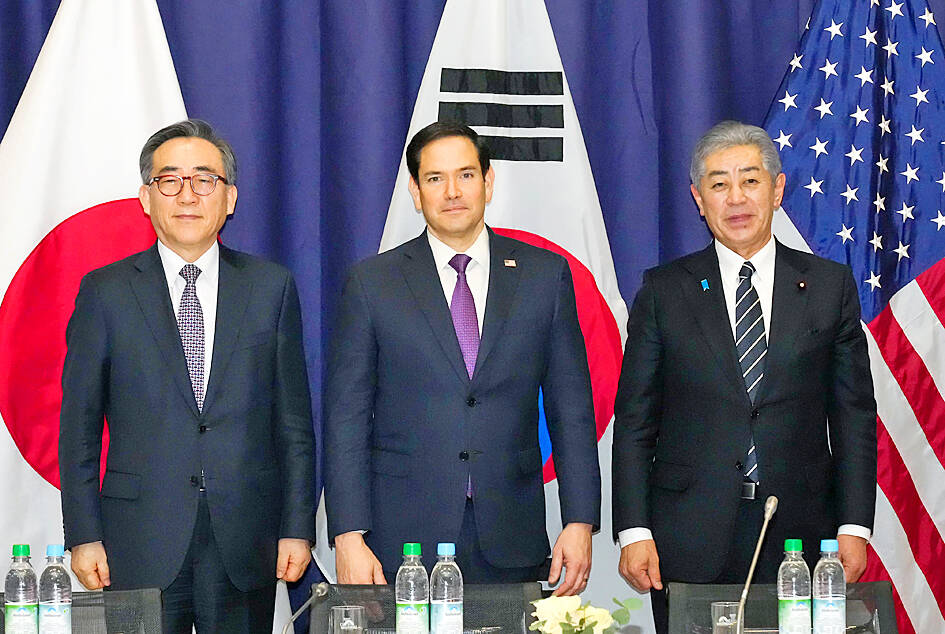The US, Japan and South Korea renewed their “resolute” pledge to seek the “complete denuclearization” of North Korea, a joint statement from the three allies released on Saturday said.
The statement came after new US Secretary of State Marco Rubio held his first meetings with South Korean Minister of Foreign Affairs Cho Tae-yul and Japanese Minister of Foreign Affairs Takeshi Iwaya on the sidelines of the Munich Security Conference on Saturday.
“The Secretary and Foreign Ministers reaffirmed their resolute commitment to the complete denuclearization of the Democratic People’s Republic of Korea (DPRK) in accordance with the United Nations Security Council Resolutions (UNSCRs),” it said.

Photo: EPA-EFE
“They expressed their serious concerns over and the need to address together the DPRK’s nuclear and missile programs, malicious cyber activities including cryptocurrency thefts, and increasing military cooperation with Russia,” it added.
The three sent a “strong warning” that they “will not tolerate any provocations or threats to their homelands,” and vowed to maintain and strengthen international sanctions against Pyongyang.
They also said they were committed to “the immediate resolution of the issues of abductees, detainees, and unrepatriated prisoners of war as well as the issue of separated families.”
Largely cut off from the world diplomatically and economically, and under a bevy of sanctions, North Korea with its ongoing nuclear weapons program has been a major thorn in the side of the US for years.
US President Donald Trump, who had a rare series of meetings with North Korean leader Kim Jong-un during his first term in office, has said he would reach out again to the North Korean leader, calling Kim a “smart guy.”
Despite Trump’s diplomatic overtures, North Korea last month said that its nuclear program would continue “indefinitely.”
Pyongyang earlier this month said it would not tolerate any “provocation” by the US after Rubio called it a “rogue state” in a radio interview.
It has also slammed a visit by a US nuclear submarine to a naval base in South Korea this month as a “hostile military act.”